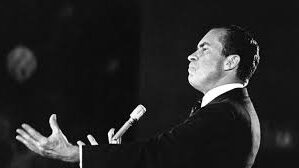The history of the United States is filled with numerous remarkable episodes and characters, but it is also marred by moments of scandal and intrigue. One such dark chapter revolves around the allegations that former President Richard Nixon plotted to assassinate a journalist. The Watergate scandal, which led to Nixon’s resignation in 1974, remains a defining moment in American political history. While the Watergate scandal is widely known, the notion of a president plotting to eliminate a journalist is less familiar. In this article, we will delve into the controversial claims and evidence surrounding this alleged plot, shedding light on this enigmatic aspect of American history.
The Watergate Scandal
Before delving into the alleged assassination plot, it is crucial to understand the backdrop against which these events took place. The Watergate scandal was a political crisis that unfolded in the early 1970s. It involved the break-in at the Democratic National Committee headquarters located in the Watergate complex in Washington, D.C. on June 17, 1972. The break-in was orchestrated by individuals associated with Nixon’s reelection campaign and aimed to gather information to gain an unfair advantage in the upcoming election.
The subsequent cover-up efforts by the Nixon administration, including the erasure of incriminating tape recordings, drew intense media scrutiny and eventually led to a series of investigations. The scandal resulted in the indictment and imprisonment of several White House officials and Nixon’s resignation from the presidency in August 1974, making him the first U.S. president to step down from office.
The Allegations of Assassination Plot
During the investigations into the Watergate scandal, some startling information came to light. It was revealed that the Nixon administration had compiled an “enemies list” consisting of political opponents, activists, and journalists who were critical of the administration. Among the individuals on this list was Jack Anderson, a renowned investigative journalist known for his provocative columns and reports.
In the early 1970s, Jack Anderson had been a persistent thorn in the side of the Nixon administration. He had published articles that were highly critical of Nixon’s policies, and the President considered him a threat. It was during this time that allegations arose suggesting that Nixon had authorized a plan to assassinate Anderson.
The evidence supporting these allegations remains largely circumstantial. The most significant piece of information comes from a memo written by former White House Counsel John Dean, who testified about the alleged assassination plot during the Watergate hearings. According to Dean, he had been approached by then-White House aide Tom Charles Huston to gather information on Jack Anderson. While Dean testified that he did not believe the request to be an explicit order to assassinate Anderson, he did find the request alarming.
Other sources have suggested that a private investigator, E. Howard Hunt, was contacted by the White House to find derogatory information about Anderson, which some have interpreted as part of the alleged assassination plot.
The Investigation and Subsequent Dismissal
Despite these troubling allegations, there is no concrete evidence to definitively prove that Richard Nixon directly ordered the assassination of Jack Anderson. The allegations have remained speculative and controversial, largely due to the absence of conclusive proof.
The Watergate investigations primarily focused on the cover-up and the break-in at the Democratic National Committee headquarters. The allegations related to the assassination plot were not extensively pursued, and as a result, there was no legal action taken against Nixon in connection to these claims.
The allegations that Richard Nixon plotted to assassinate a journalist, while shocking and disturbing, have remained unproven and speculative. The Watergate scandal itself was a momentous episode in American history, leading to the resignation of a sitting President. However, the notion of a U.S. President plotting to eliminate a journalist, if true, would have further darkened that chapter in American history.
To this day, the details surrounding the alleged assassination plot remain shrouded in mystery and controversy. While the evidence is insufficient to draw definitive conclusions, these allegations serve as a reminder of the lengths to which individuals in positions of power may go to silence their critics, underscoring the importance of a free and independent press in a democracy. As we reflect on the lessons of history, we must remain vigilant in defending the principles that uphold a transparent and accountable government.
Views: 41






